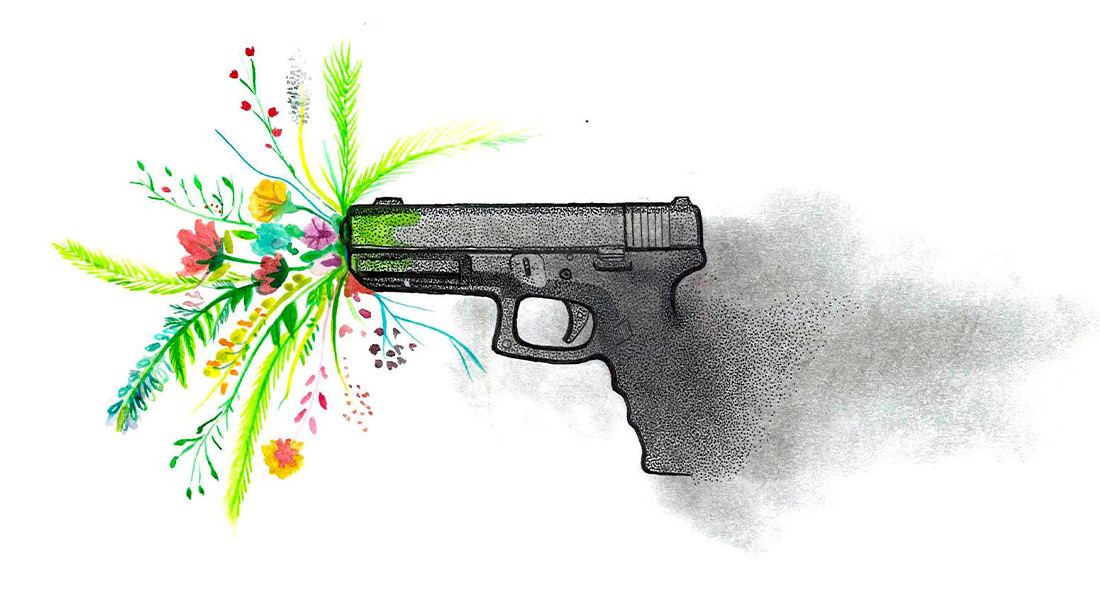‘It is necessary that you change everything’
There’s no Band-Aid fix for policing and the prison industrial complex
In an article published on Medium, police abolitionist and Project NIA founder Mariame Kaba writes that to stop police violence, “we need better questions and better demands.”
Instead of wondering how to change policing, Kaba asks: “The fact is that we haven’t always had police. What makes us believe that we always will – or that we always will have to?”
“It’s not simply that we can’t imagine a world without police, but that we are disciplined into not having that imagination,” she writes. “Cop shows and other pro-law enforcement propaganda are an important way of naturalizing policing. Children’s books, cartoons, comic books, Lego toys, Officer Friendly programs in schools and other popular-culture artifacts past and present – all condition us into being unable to imagine a world without police.”
The result? “Too many people continue to see police as a resource to end violence rather than as significant purveyors of violence in our communities.” Police are lauded as helpers, mediators and essential workers.
“Boilerplate TV procedurals, true-crime podcasts and the evening news sell us a world where the police, beleaguered and badgered, are ultimately all that stands between those of us who wish to live in society and the others who would choose savagery,” Josie Duffy Rice writes for Vanity Fair. “This is a myth.”
But it’s enticing. Viewers understandably want to root for Brooklyn Nine-Nine’s Jake Peralta and Flashpoint’s Canadian cast of police tacticians. Anyone who questions the police, therefore, criticizes an institution people respect and feel like they know – which leads to pushback.
In the Can We All Be Feminists? essay collection, Charlotte Shane writes “When activists speak out against police and prisons, people immediately demand that they offer a replacement apparatus, but it is an impossible demand. The transformation needs to be more profound than a simple swap.”
The answer to “what will replace police?” is nuanced, yet the question is hurled at just about anyone who shares Facebook posts from Winnipeg Police Cause Harm or starts conversations about police brutality at the dinner table.
Shane invokes Kaba, who once said the work of abolition “insists that it is necessary that you change everything.” Solely asking what will replace police is irresponsible. It’s impossible to come up with an answer on the spot, especially without extensive work and research.
“So if we abolish the police, what’s the alternative? Who do we call?” human rights lawyer Derecka Purnell asks. “As someone who grew up calling 911, I also shared this concern. I learned this: Just because I did not know an answer didn’t mean that one did not exist. I had to study and join an organization, not just ask questions on social media.”
And while there’s no short answer, activists like Kaba have pieced together the start of a solution. “No one entity would or should replace prisons, policing and surveillance,” she writes.
Abolitionists know communities need systems that actually serve and protect. Accusing them of believing otherwise is unfair and downright wrong. “When people dismiss abolitionists for not caring about victims or safety, they tend to forget that we are those victims, those survivors of violence,” Purnell writes.
Police simply aren’t the answer. Chicago organizer Damon Williams summarizes it best: “When I see police, I see 100 other jobs smashed into one thing with a gun.” And that’s no way to reduce harm.
Danielle Doiron is a writer, editor and marketer who splits her time between Winnipeg and Philadelphia. She’s spending the pandemic reading, practising yoga and cursing out the governments in both cities she calls home.
Published in Volume 75, Number 19 of The Uniter (February 25, 2021)








